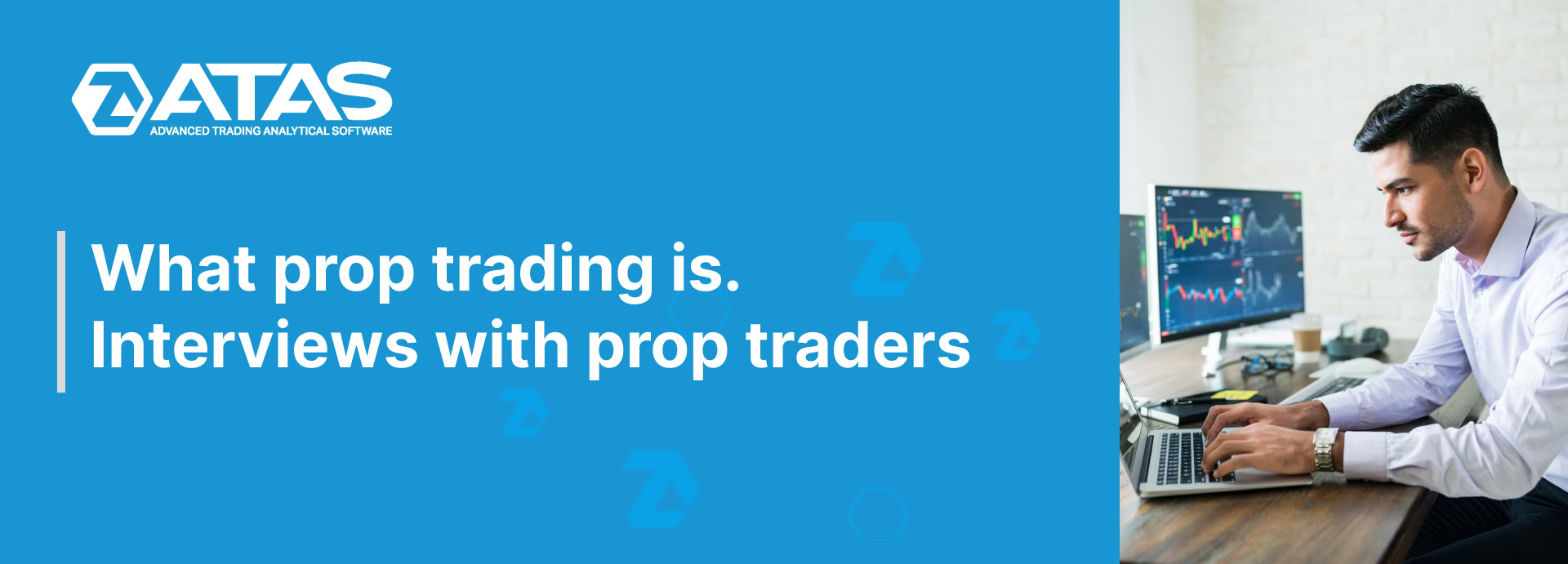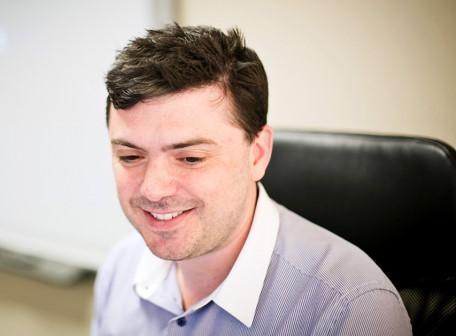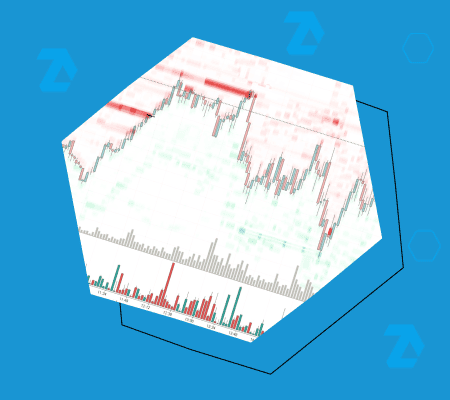
Prop trading, prop traders and prop trading companies in Russia – what are they and how do they work? In this article we will acquaint you with the prop trading concept. There are quite a lot of traders who make profit with 6 or 7 zeros a year started to trade in prop trading companies. This is an information-educational article from which you will learn:
- What prop trading is;
- An approximate structure of prop trading companies;
- Principles of work;
- Advantages for financial organizations;
- Advantages for private traders;
- Foreign and private traders;
- Interviews with prop traders – Gay Bower, Daniel Goldberg and Merritt Black.
What prop trading is?

Prop trading (proprietary trading) is trading in stock and forward markets at own expenses. Financial firms and banks could be prop companies. They make profit not from taking commissions for managing customers’ funds but directly from trading operations and they risk their own capital. Naturally, prop companies believe that their profit is much bigger than that of conservative investors, ETF (Exchange-Traded Fund) and hedge funds. The main resources of prop firms are money and profitable traders. The more of the former and latter they have, the higher the profit of a prop company is.
As well as with other financial innovations, prop trading emerged and actively developed in the US first and only then in the rest of the world. However, the Volcker Rule was adopted after the 2008 crisis in the US. According to this rule, the banks should act for the benefit of their customers only and cannot be engaged in the risky speculative activity. American banks had to back off from prop activity or allocate it as a separate structure.
An approximate structure of prop trading companies
All prop trading companies are different and we describe just an average structure.
- Managers – several people that make decisions. As a rule, these are practicing traders who established this firm.
- Senior traders – human resources that make profit.
- Risk managers – several people that develop risk management rules and control their performance.
- Beginner traders – they learn from senior traders. At the beginning they trade on a simulator, later they start trading with limited volumes. There is a high personnel turnover here and many enthusiasts want to work here.
Principles of work
Principles of work of prop companies are different. Again, we will describe you a general scheme. You will have to find out specific conditions directly from the prop company you are interested in.
- To start trading a trader deposits a security or money and a prop trading company adds own funds significantly increasing the working capital.
- A trader is hired for a trial period during which he receives a minimum payment. The idea is to show good performance. If a deposit is required for trading, a trial period might not be required. Some firms do not pay wages during the training and trial period.
- Losses in each trade and daily losses are limited by risk managers.
- A prop firm takes a share of the profit of each trader.
- Some firms conduct training and some – not.
- There is a rigorous pre-selection in serious and well-known firms – it is necessary to show a stable income and strict observance of the rules. For example, a compulsory use of stop losses and absence of averaging in the event of losses. Selection has several stages and could last for half a year.
- Traders may work remotely or in the office.
- Some firms provide advanced software, while others provide only basic terminals, such as Quik.
- Successful traders may ask for special conditions.
Advantages for financial organizations
- Big profit with limited risk and investments;
- Reserves of stock on the accounts when trading in the stock market;
- A possibility to become a market maker on certain securities and create liquidity.
Advantages for traders
- A bigger leverage.
- Learning from successful traders.
- Working in a team of like-minded colleagues.
- Quick exposure and experience.
- Unlimited profit.
- A possibility to use the training experience in other spheres and become more successful.
Prop trading companies in Russia and abroad
SMB Capital – очень известная американская фирма. Один из ее основателей Майк Беллафиоре написал книгу “Один хороший трейд”.
SMB Capital is a well-known American firm. Mike Bellafiore, one of its founders, is the author of the ‘One Good Trade’ book.
Russian prop companies started to emerge in the beginning of 2000s only, that is why there are not so many of them as in the US. Two well-known ones are A-Lab Group and Borsa. We found this contest in the Internet where a prop company selects successful traders.
From interviews with prop traders
We’ve read interviews with prop traders from different countries and will tell you about the most interesting things from their experience. Our comments are in italics.
Gay Bower works in the Australian prop company named Propex.

To make a living by trading you will need:
- Time. There is a direct dependence between the time you spend in front of the monitor and successful trading.
- Flexibility. You should be open to new information and training. Do not be afraid to make mistakes.
- Strength of will. The trading training consists of mistakes. You will keep falling into the same traps, lose big money and lose faith into your trading system, but you should have a strength to cope with it. You should learn from your mistakes and keep your emotions under control.
Gay recommends to do the following things before contacting a prop company:
- to read the ‘One Good Trade’ book because its author is a co-founder of one of the biggest prop companies. You can download this book from the Internet.
- to study training courses and read books of prop companies about trading without charts. These are paid for courses. You can find pirated books.
- to study the website of the Chicago Mercantile Exchange (CME).
- to try trading in different markets on a simulator.
Approximate stages of work with candidates in Propes:
- The first week – exposure to trading, execution of simple exercises at least several hours a day. Trading techniques are different but very simple.
- The second-fourth weeks – even more exposure and the task is to find your optimal style in trading. The following is monitored: profitability, maximum drawdown level and P/L (Profit/Loss) ratio.
- Two months and more – perspective candidates are requested to come to the office where the firm specialists attentively monitor the stable performance and sound activity in the selected markets. The firm traders provide training and give advice.
After all these stages, the firm offers full employment on a real trading account to the best candidates.
Dan Goldberg works in the English prop company named Futex.
What the prop trader Dan Goldberg is:
- As of now – deals with education.
- Sphere of activity in Futex – training beginners and active trading.
- Preferred markets – Eurobonds and Euro Stoxx.
- Preferred instruments – support and resistance levels, Market Profile for a global picture and Smart DOM for confirmation of the entry into a trade and understanding what takes place in momentum. We are very pleased that professional traders share our passion for the Market Profile and Smart DOM.
- The biggest influence – emergence of electronic trading and market profile.
Advice from a prop trader:
- The golden rule – do not trade such volumes, which you cannot afford losing.
- The trading myth – it is easy to trade and there is a magic trading system. We also tell you all the time that there are no magic trading systems. There is a magic software.
- The main advice – first learn then trade. That is why we regularly update our blog and YouTube channel.

Merritt Black works in the American prop company named SMB Capital.
Dan believes that successful prop trading requires intellect, self-discipline, diligence and common sense. And also the ability to accept mistakes and losses. All professional traders speak about the ability to accept mistakes and learn from them. It is rather difficult to arrive at that.
About prop trading:
- It is not for everyone.
- Advantages – accelerated education and experience and support of successful players.
- Disadvantages – financial pressure and work with big lots and permanent risk.

Educational process in Futex:
- 1-4 weeks – mainly theory.
- 4-8 weeks – exposure to the Smart DOM on the historical data. Beginners do not trade in real markets or on a simulator, they trade using the software which has real historical data. The P/L ratio and other indicators of stable trading are monitored at this stage. This is the main part of training.
- After the 8th week – trading on a simulator.
- 20-24 weeks – traders should show stability of trading on a simulator. If there is no stability, a question arises whether the firm needs them. Do not give up if you didn’t reach the level of stable profit after 24 weeks of active trading. You trade at home and not in a team of professionals. Perhaps, you just need more time.
Dan Goldberg says that approximately 50% of those who passed training become traders with a stable profit. But different traders have different profitability. Prop companies prefer those traders who achieve the level of annual profit with 6 or 7 zeros. We speak about dollars here.
95% of traders that leave the firm become more successful in various branches.
What the prop trader Merritt Black is:
- Sphere of activity – active trading and training beginners. Successful traders often become trainers. This is how their life’s closed cycle is formed: “I am trained – I successfully trade – I train”.
- Preferred markets – Crude Oil and Nasdaq. These are very fast and explosive markets. One has to have a certain temper to trade in these markets.
- Preferred instruments – Market Profile and Smart DOM. Once again we share these passions and enjoy them.
What qualities, according to Merritt, professional traders should have:
- Ability to work under conditions of uncertainty. Traders should not forecast and make guesses because anything can happen in the market. It is better to forecast weather.
- Ability to open trades only when the required conditions coincide. You shouldn’t enter into a trade without obvious reasons or if you want to retrieve your losses of a previous trade. We would call it the iron-cast discipline and control over your emotions.
- Ability to objectively assess the market situation with the use of advanced instruments – Market Profile, Smart DOM and Footprint. Knowledge of the Market Auction Theory and risk-reward ratio (R:R).
- Ability to stay in momentum and assess the current situation in the ‘what if’ terms: if the price breaks the support level, then …or if the price doesn’t break the support level, then… Traders do not forecast, they use their competitive advantage instead.
- Ability to use that timeframe, which is good for trading in momentum. If you are an intraday trader, you do not have to analyze monthly charts every day.
- Ability to know your competitive advantage or ‘area’ and to use it. We write about it every Tuesday and Friday.
- Ability to quickly process important information and separate it from not important information. This is about trading on news, reports and tweets, which move prices.
- Ability to see momentum and easiness of the price movement and to feel the market rhythm. Merritt recommends to filter out the market noise using the ZigZag pro indicator, which is available in ATAS. We do not speak about this indicator specifically since we do not want to move away from the main subject. Our blog has articles, in which we describe in detail how this indicator works.
- Ability to work under different market conditions since each platform has its character – volatility, volume and rate. Knowledge of various market tactics. For example, the markets’ slowing down during summer or holidays might put you out of your usual trading style and bring losses.
- Ability to educate yourself. Our blog and Knowledge Base will help you.
- Ability to do what you say. If you have a competitive advantage but you are not able to use it, you may presume that you do not have it.
Conclusions
We told you about prop traders and instruments, which they use. ATAS is a professional trading platform for all traders. It has the Market Profile, Smart DOM, ZigZag pro and many other powerful instruments in a handy format.
If you want to become a professional trader, start from training and use our trading platform.





